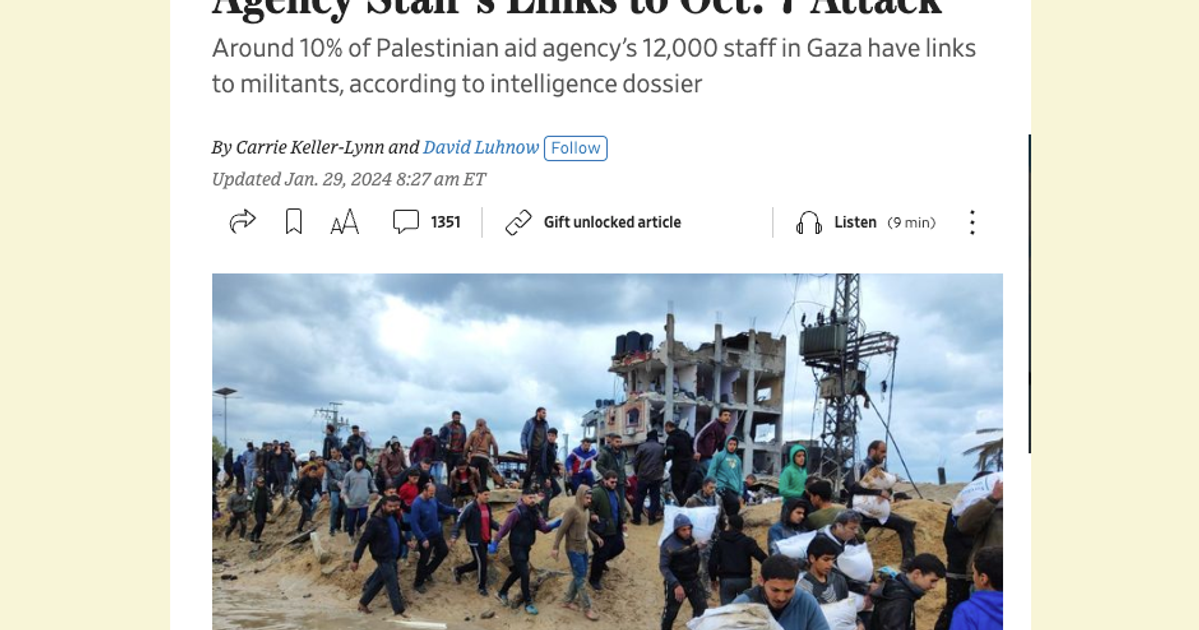In January, The Wall Street Journal made an explosive claim: Quoting “intelligence reports,” the paper reported that not only had 12 members of the United Nations Relief and Works Agency for Palestine Refugees in the Near East, or UNRWA, taken part in the Oct. 7 attack on Israel, but 10% of the relief agency’s 12,000 workers in Gaza had ties to militant groups.
The New York Times on Jan. 28 had published a detailed story about 12 workers who aided in the Oct. 7 attacks, followed by the Journal’s broader piece about UNRWA staff’s alleged links to Hamas — a one-two punch that had an immediate impact on the agency. More than a dozen countries including Germany and Britain froze funding to UNRWA, stalling a total of $450 million. It was a massive scandal that put the organization, the main conduit for aid to Gaza, on the defensive.
But months later, the paper’s top editor overseeing standards privately made an admission: The paper didn’t know — and still doesn’t know —whether the allegation, based on Israeli intelligence reports, was true.


Some more lines from the article about the NYT and WSJ defense: